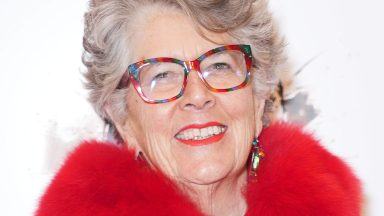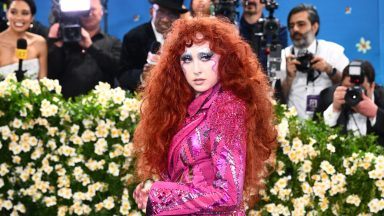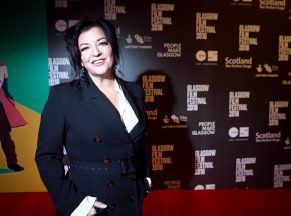An exhibition inspired by creatures dreamt up by JK Rowling is opening its doors.
The Natural History Museum exhibition draws on the creatures in the Fantastic Beasts films, as well as the Harry Potter books.
Finally opening after being postponed because of the coronavirus pandemic, it explores how legends and stories are inspired by the natural world.
Curators say it “celebrates beasts in all their forms, both real and mythical”, including those created by Harry Potter author Rowling.
Louis Buckley, who curated the display, said it is “our most ambitious exhibition to date”.
“It contrasts the incredible magical animals of JK Rowling’s wizarding world with the equally extraordinary animals in the real world,” he said.
“Visitors will be able to learn about the links between real animals and mythical creatures, for example the links between dinosaurs and dragons, between narwhals and unicorns.”
The museum collaborated with special effects company Framestore, which worked with Warner Bros on bringing Rowling’s beasts to life on the big screen.
Clare Matterson, the museum’s executive director of engagement, said the exhibition is a “celebration of science and nature”.
“Bringing characters from the wizarding world together with some of the most fantastic creatures from the natural world will produce a captivating experience that will show how the natural world has inspired legends and stories that have enthralled generations,” she said.
Objects on display include the tentacle of a real giant squid – thought to have been the inspiration for tales of sea monsters – which was retrieved from the stomach of a sperm whale.
Film props include the “dragon skull” from Professor Lupin’s classroom, and Fantastic Beasts And Where To Find Them, the A–Z of magical creatures written by Newt Scamander, the character played by Eddie Redmayne.
Curators say they hope the exhibition opens the museum up to “new audiences” and highlights “some of the fantastic beasts that exist in the world today”.
The exhibition also looks at the planet’s most vulnerable animals and discusses conservation efforts.
Follow STV News on WhatsApp
Scan the QR code on your mobile device for all the latest news from around the country





























